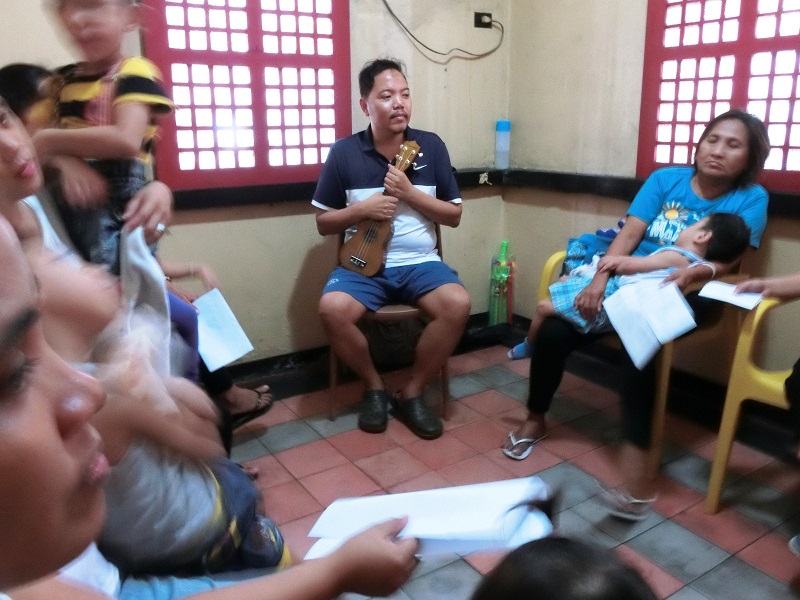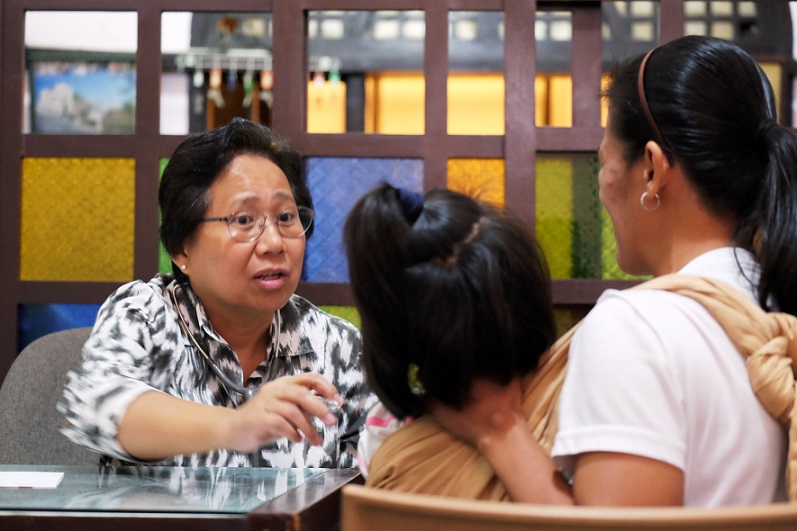Tenor Dondi Ong, the only Filipino in the international cast of Phantom of the Opera and last seen playing the role of Mr. Chua in Binondo: A Tsinoy Musical, felt that he had become relevant when he went into music therapy for his masters at St. Paul University (SPU) Manila.
He said his work as a music therapist “makes me feel I’ve done something useful in an area that the medical field has close to given up on. Basically, medicine has a lot of specialties, but there is no ministry on wellness. Where children with special needs are concerned, it’s how to make them acceptable in public. Sometimes, special education doesn’t address the learning curve, if the kids are improving in their cognitive capacity.”
In his weekly sessions with the special children brought to the feeding program of Gota de Leche in Sampaloc, Manila, what he and his fellow therapists saw was this: “Music affects them positively. They learn faster. The learning curve improves since they are enjoying the process. They can retain information for a longer time.”

Dondi Ong, center, facilitating a music therapy session at Gota de Leche building.
Gota de Leche (“drop of milk” in Spanish) is part of La Protección de la Infacia Inc., a non-profit organization that provides nutrition support of malnourished indigent children with milk and other nutrients and to promote the health and total well-being of children and mothers through information and services.
The children brought to Gota de Leche for music therapy have conditions like cerebral palsy, Down’s syndrome and global development delay. Dr. Maria Luisa Villavicencio, Gota de Leche medical director, said a mother with no regular income makes do with a diet that is high in salt. For example, a pack of high-sodium noodles can serve many children when mixed with rice.
She explained that the combination of malnutrition of both mothers and children and living in crowded conditions with people suffering from tuberculosis makes the child vulnerable to TB meningitis that leads to cerebral palsy.
When SPU Manila began its music therapy program in 2014, it used to borrow the special education class from nearby Philippine Christian University.
Ong recalled a 13-year-old child with the size of a six-year-old kid with Down’s syndrome who kept her eyes closed and shielded them with her hands throughout the 30-45-minute music session. Three days later, still keeping her eyes covered, the child followed all the instructions (stand up, raise your hand and others). All the lessons she learned were coursed through music.

Dr. Maria Luisa Villavicencio, medical director of Gota de Leche
Ong, who graduated valedictorian after he took his bachelor of music, major in voice, at the University of the Philippines College of Music, said another subspecialty that music therapy could reach out to is the geriatric group. When a patient undergoes cancer treatment, for example, his/her immune system weakens. It even becomes painful to hug a loved one. Half of the pain can be answered by pain management medicines, the other half by music.
He noticed how in the Philippines, people become mired in debt just to keep a patient alive. The common mentality is: “Huwag lang hindi ginawa ang lahat (Let it not be said that we did not do everything possible).” What seems more important in these situations is what the others think.
Ong said, “We can coordinate with the client on a song list, even on his or her death bed. Hearing is the last to go. You can tell us what you want to be played at your wake.”
In the end, he said, “Music is a way to make the patient and the family accept the inevitable while maintaining the quality of life.”